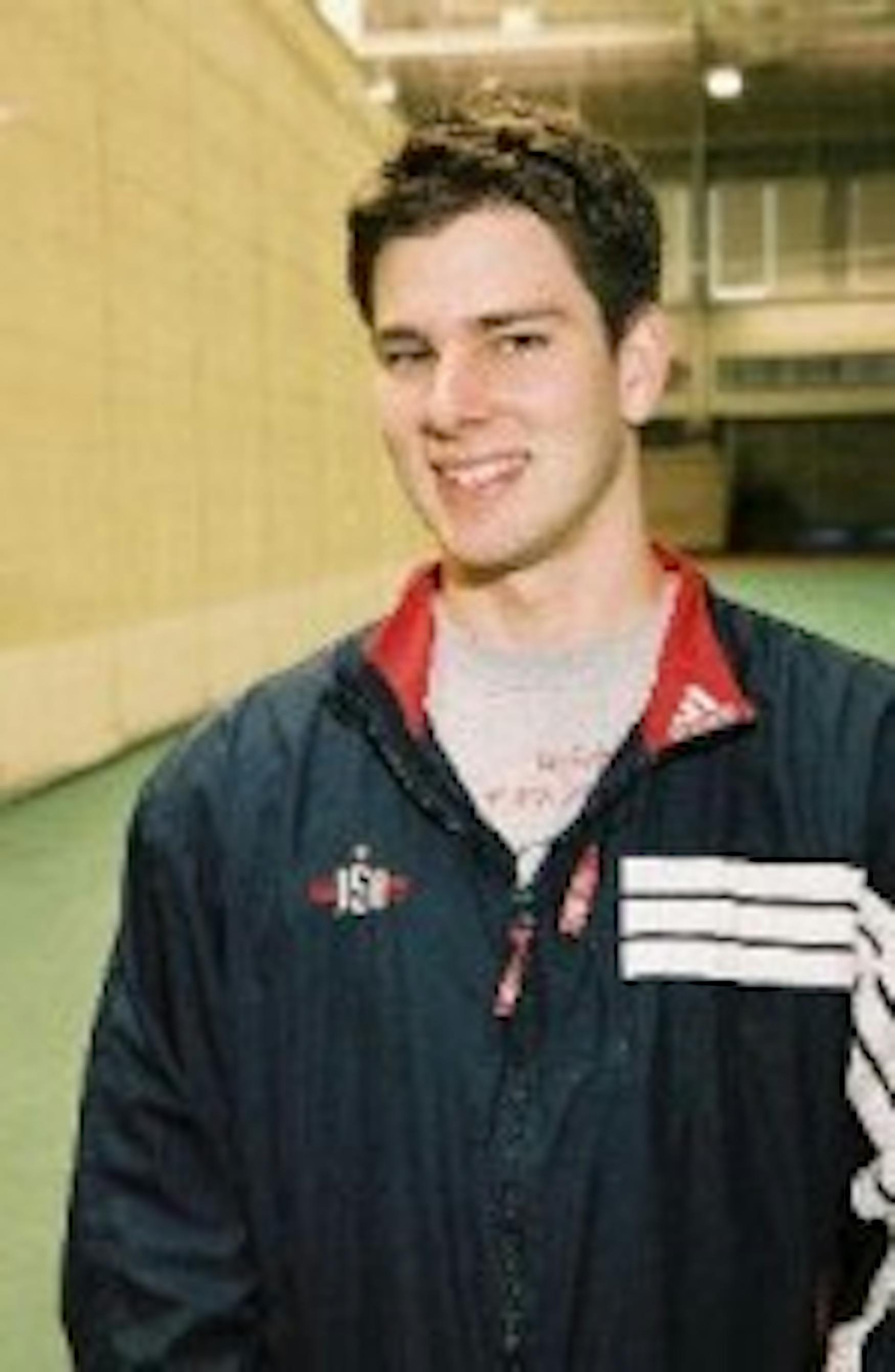Morehouse journeys to Olympic Games
Fencing alumnus prepares for the Olympics
The U.S. Men's Olympic fencing team missed out on a bronze medal in the saber division by just one point at the 2004 Summer Games in Athens, and there wasn't much Tim Morehouse '00 could do about it, even though he watched it happen. As an alternate, Morehouse traveled with the team, but was not able to fence in the tournament.Four years and one appendectomy later, Morehouse will return to the Summer Olympics, this time as a starter. In doing so, he hopes to put the U.S. saber team over the hump as Brandeis' first-ever athlete to compete in the Olympics.
"We're in a pretty similar position as when we headed into the Athens games, so we're pretty excited about our chances to win a medal in Beijing," Morehouse said. "We all know that we can win a medal, and we all feel like we have some unfinished business."
Morehouse's path to the Olympics separates him from his teammates. He started fencing at age 13, but he did not make junior and cadet teams like many of his teammates. While most of his peers took college scholarships for fencing, he did not start coming into his own until he arrived at Brandeis.
"In that regard, I'm like the guy who played for the development league basketball team and made it to the NBA," Morehouse said. "I'm the guy who's not supposed to be there, but I worked really hard and had supportive people around me."
As a senior at Brandeis, Morehouse broke onto the national scene by compiling a 21-2 record at the NCAA Championships. The performance was not lost on his head coach at Brandeis.
"He went 21-2 in a strong field of saber fencers, and he was constantly getting behind and coming back to win every bout," coach Bill Shipman told the Justice in April. "It was quite a performance of not only skill, but also determination and enthusiasm, and he did it for two days straight."
After qualifying as an alternate in 2004, Morehouse received enough rolling qualification points from April 2007 to March 2008 for his performances in international and domestic fencing competitions to earn a spot as a primary fencer on the U.S. Olympic saber team. While Morehouse awaited the phone call from the U.S. Olympic Fencing Committee to secure his bid to Beijing, he suddenly felt ill and subsequently discovered he had appendicitis.
"I actually qualified from my bed as I recovered from my appendix surgery. It was a little anti-climactic," Morehouse said. "I never pictured qualifying for the Olympics from my bed, recovering with surgery scars."
Although the surgery caused him to miss nearly four weeks of training, Morehouse captured the bronze medal for the Division I Individual National Championships in Portland, Ore. from April 25 to 28 despite just one week of practice.
Morehouse also earned a ninth-place finish out of 59 competitors in a World Cup competition in Bangkok, Thailand from May 3 to 4. He will be competing in Madrid, Spain; Valencia-Carabobo, Venezuela; Las Vegas, Nev.; and Mexico in preparation for the Olympics and to improve his Olympic seeding, giving him plenty of time to build up his strength after the surgery.
"You can't be in peak form the entire season, so it's a good time now to have this short break and start building up to peak in August when we're in Beijing," he said.
Morehouse's training entails three to-five-hour practices five days a week in addition to tri-weekly gym workouts. He also has individual lessons with U.S. Olympic Fencing Coach Yury Gelman to improve his footwork.
After the Olympic committee sets the fencing bracket three weeks before the competition, the U.S. Olympic fencing team will review its videotapes to scout the competition and to strategize for each potential opponent.
Yet Morehouse, who aspired to make the Olympic fencing team since graduating from Brandeis eight years ago, has already begun his research.
"I tried to gain as much experience as I could from the people who had been doing it all these years," Morehouse said. "I watched as many national and international matches as I could and tried to absorb as much as I could."
Morehouse's steady rise in the national rankings each year has reflected his unwavering commitment. He has ascended from 16th in 1999 to second in 2008. Morehouse, who will turn 30 in July, is five years younger than teammate Jason Rogers. He is the same age as teammate Keeth Smart, yet Smart competed in his first Olympic Games in 2000 as a 21-year- old. He attributed his perseverance to Brandeis' strong fencing program.
"I'm not the only good fencer who has ever come from Brandeis," he said. "Hopefully, my doing well will bring more attention to the Brandeis fencing program, because it's one of the best places to fence in the country."
While Morehouse looks forward to representing the United States in Beijing this August, he has also expressed enthusiasm for representing Brandeis and hopes to become the University's first Olympic medalist in addition to its first Olympian.
"I know the alumni that came before me. Mike Mayer [94 was first-team All-American, and he was one of my inspirations during my time at Brandeis because I wanted to achieve success at that level," Morehouse said. "I knew it was possible to strive for greater goals at Brandeis because someone had already done it."
"I hope the people on the team now see that they can aspire to a higher level and there is someone who is exactly where they were, capable of achieving the highest level. Hopefully, I can be an inspiration to them," he added.



Please note All comments are eligible for publication in The Justice.